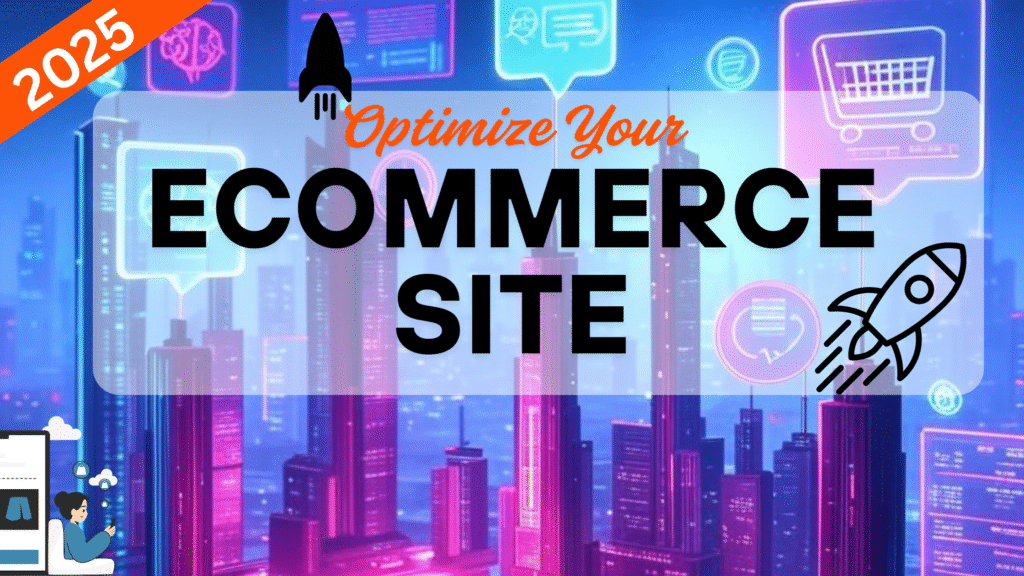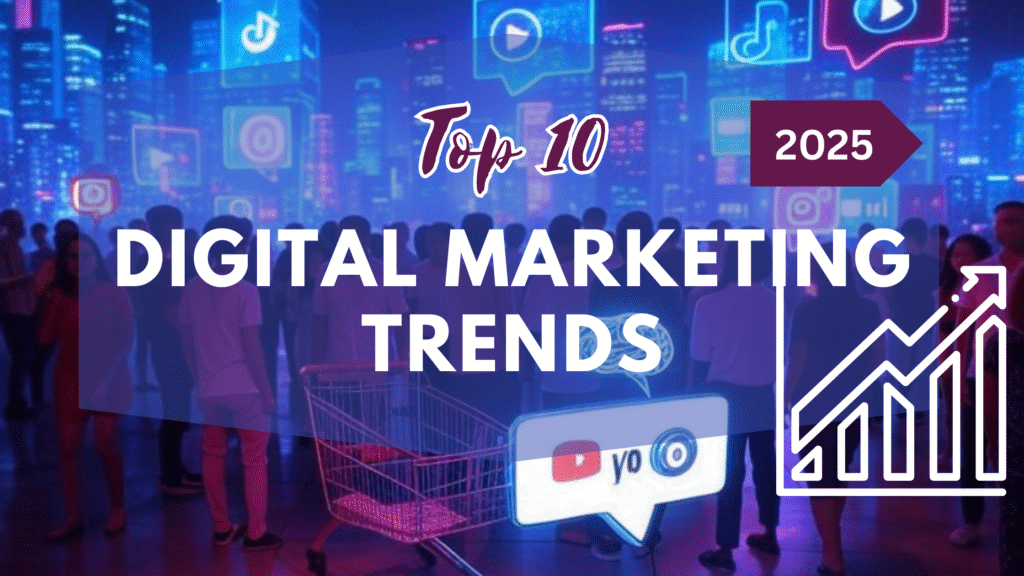Introduction
Artificial Intelligence (AI) is no longer a futuristic concept—it’s a cornerstone of digital marketing in 2025. From hyper-personalized campaigns to automated content creation and predictive analytics, AI is empowering marketers to work smarter, not harder. With 73% of marketers already using AI tools and searches for “AI marketing tools” surging by 967% over the past 24 months (Exploding Topics), the technology is reshaping how brands connect with audiences. This ultimate guide dives deep into how AI can transform your digital marketing strategies, offering practical insights, tools, and best practices to stay ahead in 2025. By leveraging high-searched keywords like “AI marketing,” “personalization,” “SEO,” and “analytics,” this guide ensures you’re equipped to harness AI’s full potential.
Why AI Matters in Digital Marketing
AI is revolutionizing digital marketing by enhancing efficiency, improving targeting, and delivering personalized experiences that resonate with consumers. Key statistics highlight its importance:
73% of marketers use AI tools, with searches for “AI marketing tools” up 967% in 24 months (Exploding Topics).
80% of consumers prefer personalized experiences, which AI delivers at scale (Smart Insights).
AI chatbots handle 80% of routine customer queries, improving response times and satisfaction (Search Engine Journal).
AI-driven personalization increases engagement by 20% and conversions by 15% (Smart Insights).
Beyond efficiency, AI helps marketers navigate challenges like data privacy and evolving search algorithms, making it an indispensable tool for staying competitive in 2025.
Key AI Strategies for Digital Marketing in 2025
1. Hyper-Personalization at Scale
AI enables marketers to deliver highly personalized experiences by analyzing vast amounts of customer data—such as browsing history, purchase behavior, and preferences—in real time. For instance, AI can recommend products tailored to individual users, increasing engagement by 20% (Smart Insights). Tools like Dynamic Yield or Salesforce Marketing Cloud use AI to segment audiences and deliver personalized emails, ads, and website experiences.
Why It Matters: Personalization builds trust and loyalty, driving higher conversions.
Actionable Step: Use a tool like Dynamic Yield to create personalized product recommendations on your website.
2. AI-Powered Content Creation
AI tools are transforming content creation, enabling marketers to produce high-quality blogs, emails, social media posts, and ad copy in minutes. Tools like Jasper, Copy.ai, and Writesonic use natural language processing (NLP) to generate content that aligns with brand tone and audience needs. However, Search Engine Journal emphasizes the need for human oversight to ensure authenticity and avoid generic outputs. AI can also optimize content for SEO by suggesting keywords and topics based on search trends.
Why It Matters: AI saves time while maintaining content quality, allowing marketers to focus on strategy.
Actionable Step: Use Jasper to draft blog posts, then refine them with human creativity for authenticity.
3. SEO Optimization with AI
AI is reshaping search engine optimization (SEO) as search engines like Google integrate AI Overviews, which appear in 80% of searches (Exploding Topics). Tools like Surfer SEO and MarketMuse use AI to analyze search intent, optimize content for featured snippets, and improve rankings. AI also helps with keyword research, identifying long-tail phrases that align with conversational queries, especially for voice search.
Why It Matters: AI-driven SEO ensures visibility in an era of zero-click searches and AI Overviews.
Actionable Step: Use Surfer SEO to optimize content for user intent and featured snippets.
4. Predictive Analytics for Smarter Campaigns
AI-powered predictive analytics helps marketers forecast customer behavior, identify high-value leads, and optimize campaign performance. Platforms like HubSpot and Marketo analyze historical data to predict which leads are most likely to convert, allowing marketers to focus their efforts effectively. Predictive analytics can also forecast trends, helping brands stay ahead of market shifts.
Why It Matters: Predictive analytics maximizes ROI by targeting the right audiences at the right time.
Actionable Step: Implement HubSpot’s predictive lead scoring to prioritize high-value prospects.
5. AI Chatbots for Enhanced Customer Service
AI chatbots are revolutionizing customer service by handling 80% of routine queries, such as order status or FAQs, with instant responses (Search Engine Journal). Tools like Drift and Intercom use AI to provide 24/7 support, personalize interactions, and even guide customers through the sales funnel. For example, a chatbot can recommend products based on user queries, increasing upsell opportunities.
Why It Matters: Chatbots improve customer satisfaction and free up human agents for complex issues.
Actionable Step: Integrate Drift into your website to handle customer queries and drive conversions.
6. AI-Driven Advertising
AI enhances digital advertising by optimizing ad targeting, bidding, and creative performance. Platforms like Google Ads and Meta’s Advantage+ use AI to analyze audience data, predict ad performance, and adjust campaigns in real time. AI can also create ad variations, testing different headlines and visuals to identify the most effective combinations.
Why It Matters: AI-driven ads reduce costs and increase click-through rates by targeting the right audiences.
Actionable Step: Use Google Ads’ AI features to automate bidding and test ad creatives.
7. Social Media Management with AI
AI tools streamline social media management by scheduling posts, analyzing performance, and generating content ideas. Tools like Hootsuite Insights and Sprout Social use AI to monitor trends, track sentiment, and recommend optimal posting times. AI can also identify influencers and analyze audience engagement to refine strategies.
Why It Matters: AI saves time and ensures social media strategies are data-driven.
Actionable Step: Use Sprout Social to analyze engagement and schedule posts at peak times.
8. Ethical AI Use and Governance
As AI adoption grows, ethical considerations are critical. Over-reliance on AI can lead to generic content or privacy concerns, eroding consumer trust. Smart Insights highlights the need for AI governance policies to ensure transparency, compliance with regulations like GDPR, and quality control. Marketers should also balance AI automation with human creativity to maintain authenticity.
Why It Matters: Ethical AI use builds trust and ensures compliance with privacy laws.
Actionable Step: Develop an AI governance policy outlining ethical use and quality standards.
Table: Key AI Tools for Digital Marketing in 2025
Category | Tool | Use Case | Link |
|---|---|---|---|
Personalization | Dynamic Yield | Personalized recommendations | Dynamic Yield |
Content Creation | Jasper | Drafting blogs, emails, and ads | Jasper |
SEO Optimization | Surfer SEO | Content optimization for search | Surfer SEO |
Predictive Analytics | HubSpot | Lead scoring and trend forecasting | HubSpot |
Chatbots | Drift | Customer support and sales funnels | Drift |
Advertising | Google Ads | AI-driven ad targeting and bidding | Google Ads |
Social Media | Sprout Social | Social media analytics and scheduling | Sprout Social |
Implementation Tips
To successfully integrate AI into your digital marketing strategy, follow these steps:
Identify Needs: Assess where AI can add value, such as personalization, content creation, or analytics.
Choose the Right Tools: Select tools that align with your goals, such as Jasper for content or HubSpot for analytics.
Set Up Governance: Establish AI governance policies to ensure ethical use and compliance.
Test and Iterate: Start with small-scale AI implementations, monitor performance, and scale up based on results.
Train Your Team: Educate your team on AI tools and best practices to maximize adoption and effectiveness.
Measuring Success
Track the impact of AI on your digital marketing efforts using these KPIs:
Personalization: Measure engagement rates (e.g., email open rates, click-through rates) and conversion rates.
Content Creation: Assess time saved and content performance (e.g., organic traffic, social shares).
SEO: Monitor rankings, featured snippet appearances, and organic traffic growth.
Analytics: Evaluate lead conversion rates and ROI from predictive analytics.
Customer Service: Track chatbot resolution rates and customer satisfaction scores.
Case Studies
Grammarly’s AI Ads: Grammarly used AI-driven YouTube ads to achieve a 9% higher ROI and 13% increase in conversions (Exploding Topics).
Sephora’s Chatbot Success: Sephora’s AI chatbot on its website increased appointment bookings by 11% by guiding customers through product selection (Search Engine Journal).
Coca-Cola’s Personalization: Coca-Cola used AI to analyze consumer data, delivering personalized ad campaigns that boosted engagement by 15% (Smart Insights).
Challenges and Considerations
While AI offers immense potential, it comes with challenges:
Over-Reliance on Automation: AI-generated content can lack authenticity if not paired with human creativity.
Privacy Concerns: Mishandling customer data can lead to breaches and loss of trust.
Implementation Costs: AI tools can be expensive for small businesses, requiring careful budgeting.
To address these, prioritize ethical AI use, start with cost-effective tools, and ensure human oversight in creative processes.
Conclusion
AI is a transformative force in digital marketing, offering tools to enhance personalization, streamline content creation, optimize SEO, and improve customer service. By adopting AI strategies in 2025, marketers can stay competitive, deliver impactful campaigns, and build stronger connections with audiences. Start by identifying areas where AI can add value, implement governance policies, and choose the right tools for your needs. With a balanced approach that combines AI efficiency with human creativity, you can unlock the full potential of AI in digital marketing.
For further reading, explore these resources:
Exploding Topics: Marketing Trends 2025
Smart Insights: Digital Marketing Trends 2025
Search Engine Journal: Digital Marketing Trends 2025


